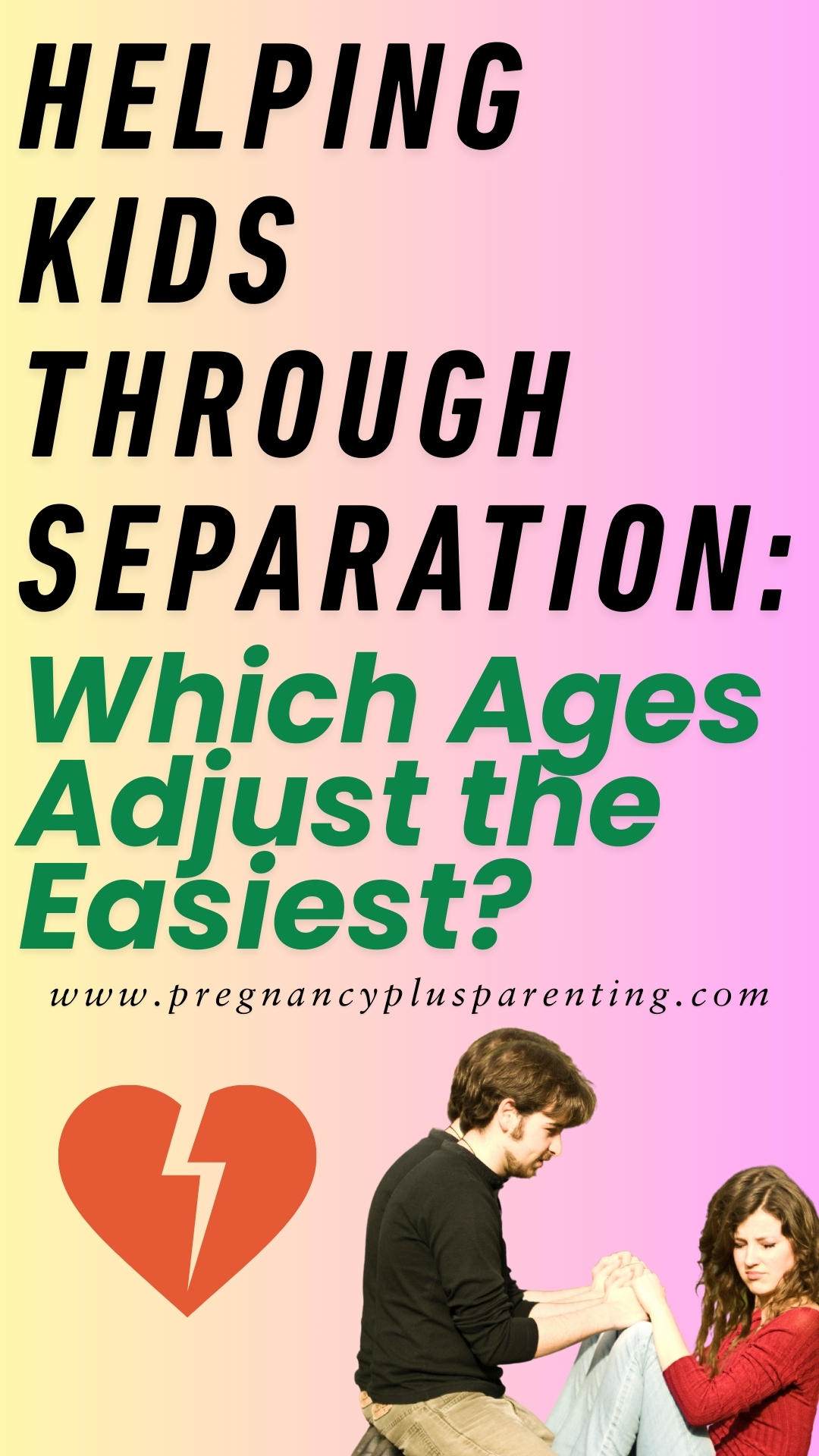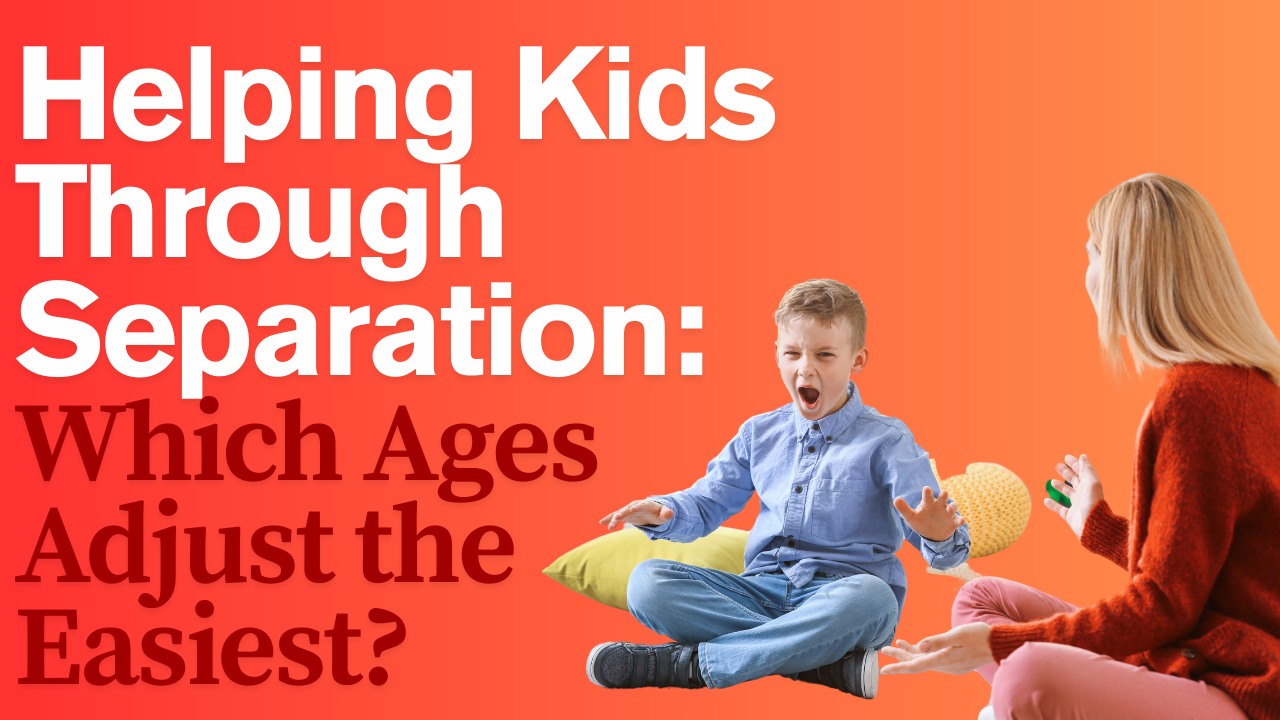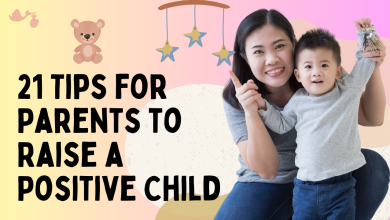Helping Kids Through Separation: Which Ages Adjust the Easiest?
If you are unhappy in your relationship and have one or more growing children, you will inevitably ask yourself the question: “At what age do children best cope with a separation?”
After all, you don’t want your child to suffer.
And it is actually true that divorces and separations are the only situations in which parents consciously accept the suffering of their children.
So it’s no wonder that when making such a decision, one hopes that the suffering and potential harmful consequences for the child are minimized as much as possible. And then one asks such questions.
Should you risk the separation while the children are still small? Ideally, before they can walk?
Or should you wait until they are out of kindergarten and have completed their first year of school?
Could it be that teenagers are particularly sensitive to their parents’ separation?
Or will my hesitation lead to the child feeling deceived later, when he or she is older?
How do children react to their parents’ separation? Are there similarities across age groups?
In this article you will find the answers.
Unwanted changes for the children
Unfortunately, there is no getting around this unpleasant news: A separation or divorce of parents is one of the most stressful events that can affect children and young people.
After all, it’s not just a world that’s falling apart, but major changes in many areas of life that are usually unwanted, including moving to another apartment, another part of town, or maybe even another city.
Often it is unavoidable that a child has to change daycare or school and thus also their entire social environment, including friends.
The family world that is falling apart drags everything around the child down with it, like a sinking ship.
The new everyday life also raises many uncomfortable questions, such as: Who pays for what? Who goes to the parent-teacher meeting? When does who attend?
When a separation occurs, both parents are usually so tense, busy and overwhelmed that the change can be anything but smooth.
Children of separated parents often also experience financial losses caused by the physical separation.
But for many children, the stress of divorce begins even before the separation, because partnerships are in deep crises before the separation.
These are accompanied by tense, changed behavior or even open conflicts between parents.
It doesn’t matter whether the parents make hidden accusations or argue openly, children sense the negative changes in everyday family life and the lack of love that prevails between the parents, even if the arguments only fly behind closed doors.
After all, they are particularly sensitive to their parents’ moods and react to hostility with insecurity and fear.
Sometimes, however, they also take on roles that should not be expected of them, such as advising, comforting or mediating.
However, children want their parents to stay together and so they develop hopes that their efforts and commitment will lead to an understanding between the parents and a separation can be prevented.
When parents separate or divorce, this inevitably leads to certain reactions from children and short- or long-term consequences for their health.
Psychological problems and problems with self-esteem, behavioral problems such as aggression or (social) withdrawal, and reduced performance often occur.
Children feel helpless when they do not understand what is happening between their parents and have no control over it.
Children of different ages have different reactions.
And of course, a preschool child will deal with the separation differently than a teenager because there is a big difference in developmental level.
Possible reactions of children at different ages
How the child reacts to the divorce or separation depends on various factors.
In addition to age and developmental stage, the basic psychological constitution and the ability to cope with anxiety and adapt also play a significant role.
The way the parents interact with each other after the separation also has a significant influence on the children’s experiences: Are they able to cooperate in raising the children and respect each other for the benefit of the children?
The better the parents deal with the separation or divorce, the better the children can cope.
However, a separation is not a singular event, but a long process that takes place in phases.
It usually takes two to three years from the first thoughts about separation through the decision and the separation phase to the phase afterward.
In most cases, parents remain at odds for several years or even permanently.
When you consider this time frame, you will naturally notice that this is a long period of time in which children are often left alone and have to cope with their developmental tasks without the support of their parents.
After all, many parents who get divorced are too preoccupied with their own inner lives in the separation situation.
Children are exposed to severe stress and react differently to the emotional suffering.
Children of divorce are usually temporarily thrown back to an earlier stage of development until a sense of security and a new balance are restored.
Some are overwhelmed by angry feelings, do not want to acknowledge the situation and protest, while others remain passive and resign.
Feelings such as guilt, helplessness and fear are on the agenda and are warded off through aggressive and antisocial, childish or precocious behavior.
Psychosomatic symptoms such as headaches and stomach aches, nausea and vomiting or even bedwetting can also occur when the situation is experienced in a depressive manner.
1. Children aged 0 to 2.5 years
Some parents think that the younger the children, the less severe the consequences. Unfortunately, that’s not the case.
Even children under three years of age are stressed by the separation and often react with irritability and crying.
The relationship with parents as the most important caregivers is deeply shaken.
The children lack closeness and security and feel abandoned. Their environment is not perceived as stable.
Children can no longer engage in play, are anxious and clingy because they are deeply insecure.
Separation experiences also have a traumatic effect on infants.
They often develop separation anxiety, which is mainly noticeable in the fact that they can only fall asleep in someone’s arms .
2. Children aged 2 to 3 years
In young children, significant changes in behavior, fears, defiant behavior and aggression are already occurring.
Children at this age have not yet developed the skills to deal with stress.
Children know, at least intuitively, that they are dependent on their parents, and separation can cause them tremendous anxiety. In any case, it is extremely overwhelming.
Children may also resort to masturbation to relieve stress and thus comfort themselves.
3. Children aged 3 to 5 years
At this age, children perceive their relationship with their parents primarily through interaction, by noticing that their needs are being met.
So for children, it means a deprivation of love if one parent is rarely present and available.
At this age, little ones relate the whole world to themselves.
The separation of their parents shakes their trust in stable relationships, and they often blame themselves and their own perceived misconduct.
When children feel intense anxiety and guilt, they may relapse into behaviors they may have previously overcome, such as bedwetting.
But aggressive behavior can also occur suddenly, as well as other psychosomatic disorders such as stomach aches and headaches.
4. Children aged 5 to 6 years
Fear and aggression as well as increased crying are among the common reactions of preschool children.
Children of this age who have experienced separation view the dissolution of the family and the lack of shared activities as a withdrawal of love and a separation from themselves.
At preschool age, children can already understand to some extent what changes they are facing.
They can identify and express feelings such as sadness and anger and hold on (for a long time) to the desire for the parents to be reunited.
5. Children aged 6 to 9 years
The little personalities long above all for the reunion of the family and can feel deep helplessness and sadness if this does not happen.
Behavioral problems, underachievement, and difficulties in relationships with peers often occur.
6. Children aged 9 to 12 years
In this age group, children often react with strong and deliberately directed anger against their parents.
They are angry because they feel abandoned and that something is being forced upon them that they do not want.
Separation can also result in depressive moods and low self-esteem in children. A drop in school performance is often observed.
7. Children and young people aged 12 to 15 years
At this age, children can already understand a lot of things, but they can also ask very uncomfortable questions and express bitter criticism.
Teenagers often feel intense anger and shame, which can mask the pain and feelings of grief.
They feel abandoned and betrayed , disadvantaged in their search for their own identity.
On the other hand, older children may also be able to deal with the situation constructively and are often used by their parents as mediators.
It is important to always keep in mind that these are still children who are taking their own steps towards separation and need appropriate behavior from both parents.
If the family breaks up during adolescence, children lose the security and stability they need to take their first steps towards independence, which makes them even more vulnerable than they already are.
When a parent makes negative comments about the other, young people relate them to themselves and are very unsettled by relationship issues, which are becoming increasingly important.
At what age do children best cope with a separation? – Dealing with one’s own conscience
Toddlers and preschoolers cannot understand what divorce or separation means.
For them, mom and dad belong together and it is so natural, as if it had always been that way.
So it doesn’t really help to try to explain to a three-year-old child that mom and dad no longer love each other and will therefore no longer live together.
“Mommy/Dad still loves you very much and it will always be like this” and similar sentences are not well understood by little ones.
Only over time does the child understand that their father, for example, is still an integral part of their life, even though he’s no longer there every day. Until then, the child of divorce perceives the separation as a withdrawal of love.
Younger children experience greater stress from the separation than older ones because they lack the skills to understand the situation, but older children are also exposed to great suffering.
Suffering is inevitable in every age group, and it’s unavoidable. Healthy children must respond to such a crisis; anything else would be unnatural.
However, the consequences are usually short-term and, in the best cases, the critical event does not have far-reaching consequences for the child’s mental state.
Although temporary stresses and reactions do occur, these are not pathological in nature and can be alleviated and corrected.
The better the parents cope with the separation, the faster the children will recover from the crisis and get used to the new living conditions.
Psychologist and co-founder of the Pedagogical Institute Berlin, Claus Koch, explains that there is no right time for a separation.
He co-authored the guidebook “Helping Children During Separation and Divorce: Psychological and Legal Advice for Parents” with former family court judge Christoph Stecker .
You have to endure the bad conscience, says the psychologist.
In the past, parents were more likely to choose to stay in a relationship and endure rather than separate. Today, things are different.
Between 150,000 and 200,000 children are separated from their parents each year in Germany, and the trend is rising.
There are hardly any long-term studies that deal with the long-term consequences of separation.
This is probably due to the parents’ guilty conscience.
So far, it has been shown that 20 to 25 percent of children of separation suffer emotional damage, which in the long term manifests itself in the form of attachment anxiety and a lack of self-confidence.
Unfortunately, this is very discouraging and frightening.
But there is also the other side of the coin.
The good news is that most children come out of it well. And not only that…
Children can even benefit from a separation in the long run
E. Mavis Hetherington, a professor of psychology at the University of Virginia in Charlottesville, has followed the biographies of 1,400 separated families for 30 years and examined the individual consequences for the children using interviews and diaries.
In 2003, the world’s largest study on this topic was written, the results of which were also published as a book .
According to the long-term study, separations and divorces are always stressful for children, especially in the first two years, which also lead to behavioral problems, but after about six years, most children have successfully overcome the crisis.
Only in one in five children does the consequences not remain short-term, but the abnormalities persist.
In fact, there are quite a few children who emerge from a separation as clear winners.
It was observed that they became more mature and determined, as well as more resilient, and grew from the challenges of the separation.
In addition, separation brought advantages to children in conflict-ridden families because while the parents were together, the children showed classic divorce symptoms and behavioral problems that accompany separation, such as defiance, aggressiveness, anxiety and little social responsibility.
If these children later grow up in a healthy and peaceful environment, they have clearly benefited from the separation, which was still evident two years later.
The well-being of children depends mainly on the behavior of their parents
Fortunately, not every separation results in a war of roses and not every separation occurs in such a way that the well-being of the children is at risk.
The study has shown that the behavior of the parent with whom they live is of particular importance.
If mom and dad, or at least one of them, are able to be caring and maintain a competent parenting style , this has proven to be the best protection against the stresses of separation.
However, irritability and indifference on the part of parents have led to major problems for the children.
The study has shown that it is not the separation or divorce itself that poses a risk to children, but rather the way in which it takes place.
It is shocking that 25% of parents fail to treat each other respectfully and cooperate for the benefit of their child.
Unfortunately, a quarter of the parents of children of divorced parents in the study continued to have conflicts with the other parent six years after the separation.
And if the parents continue to argue long after the separation, this is more dangerous for the children’s mental state than if they had stayed together.
Definitely create protective factors
Much more important than the age of the children in a separation is the willingness and ability of the parents to create protective factors that make the separation situation easier for the children.
To help the children cope better with the separation , there are certain rules of conduct.
Both parents should always convey the message that it is okay for the child to spend time with the other parent and to love them.
You should not speak negatively about your ex-partner even if he or she is not taking proper care of the child.
In order to avoid plunging the child into a conflict of loyalty, professional help is usually necessary, because parents are often powerless to deal with their own feelings of bitterness and hostility towards their ex.
Then they don’t think about the fact that children need and love both parents and that they are put in a very difficult position when they have to defend mom or dad and thus always seem to be against someone.
No child should be exposed to this pressure. This is one of the reasons why children, up to a certain age, don’t decide for themselves who they want to live with unless a shared parenting arrangement is in place.
After the separation, you yourself suffer from a poor mental state and, in addition to your job and all the changes that need to be organized, you have less time for the children.
But it is precisely in this period that children especially need their parents and caring caregivers.
That’s why it’s incredibly important that you’re there for your child, maintain regular contact with family members like grandparents (even if you may not have done so before), and build a network that can support you and ease the burden of your everyday tasks.
Interacting with people will also be good for you, and over time the child will learn that the “family after the family” also provides security and safety.
Final thoughts
Unfortunately, there is no age at which children are not affected by a separation or divorce of their parents.
As a rule, this triggers unpleasant feelings, reactions, behavioral abnormalities or psychosomatic complaints in children of all ages.
In this article, I’ve listed these essentially short-term effects on children’s mental health by age group. It can take two or three years for these effects to be overcome.
It depends mainly on the behavior of the parents during and after the separation whether the so-called divorce symptoms will regress or lead to long-term problems such as low self-esteem and fear of commitment.
A long-term study has shown that many parents are still in very conflict-laden relationships even years after separation, and that this has a very negative impact on the well-being of their children.
On the other hand, it has also been shown that children can actually benefit from separations by becoming more resilient and determined or by coming into a new, calm atmosphere.
Therefore, it is strongly recommended that you seek professional help if you cannot get along with your former partner and cooperate for the benefit of the child.
There is no shame in doing so, but there is certainly a shame in putting your child’s health at risk without seeking support.
Because with or without a partner, you are still a mother with certain responsibilities towards a little person who probably sees you as a role model!







